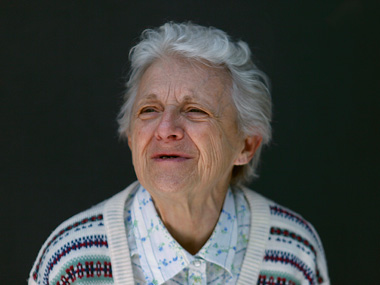Stockholm: Alzheimer’s disease is caused by amyloid precursor protein (APP), a protein that resides in the outer membrane of nerve cells, which instead of being broken down, forms a harmful substance called beta-amyloid, accumulating as plaques and killing brain cells. [caption id=“attachment_337107” align=“alignleft” width=“380” caption=“Maria Rosa, a patient with Alzheimer’s disease and former business administrator.”]  [/caption] Researchers led by Bengt Winblad, professor at Karolinska Institute’s Alzheimer’s Disease Research Centre in Sweden, working with leading neurologists, found that 80 percent of the patients in the trials developed their own protective antibodies against beta-amyloid without suffering any side-effects over the three years of the study, the journal Lancet Neurology reports. There is currently no cure for Alzheimer’s disease, the fastest growing global health epidemic, according to the World Health Organisation and the medicines in use can at best only mitigate symptoms, according to a Karolinska statement. In the hunt for a cure, scientists are also pursuing vaccination. The first human vaccination study, done almost a decade ago, revealed too many adverse reactions and was discontinued. That vaccine activated certain white blood cells (T cells), which attacked the body’s own brain tissue. The new treatment involves active immunisation, using a type of vaccine CAD106 designed to trigger the body’s immune system against beta-amyloid. In this second clinical trial on humans, the vaccine was modified to affect only the harmful beta-amyloid. Researchers believe that this suggests that the CAD106 vaccine is a tolerable treatment for patients with mild to moderate Alzheimer’s. Larger trials must now be conducted to confirm the CAD106 vaccine’s efficacy. IANS
The new treatment involves active immunisation, using a type of vaccine CAD106 designed to trigger the body’s immune system against beta-amyloid.
Advertisement
End of Article
Written by FP Archives
see more


)
)
)
)
)
)
)
)
)



